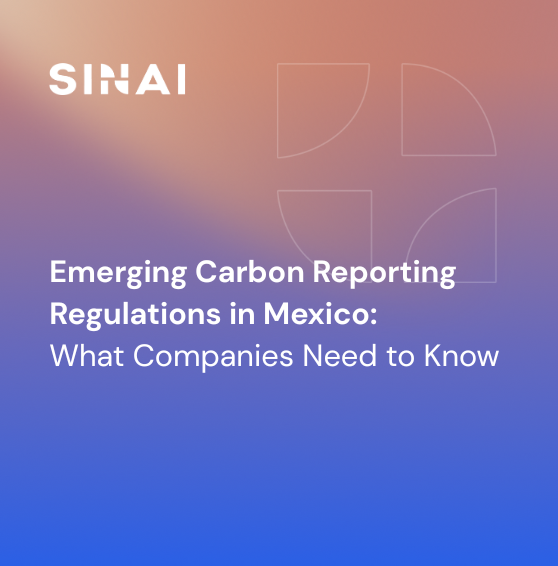.webp)
Brazil Charts a New Climate Course at COP29
The world watches as Brazil unveils its ambitious climate plan at the 29th Conference of the Parties (COP29) in Baku, Azerbaijan. With its eyes set on significant emission cuts by 2035, Brazil is taking bold steps to align with global climate goals and set a precedent for others. This move is not just about meeting targets; it's about transforming Brazil into a leader in climate diplomacy and sustainable development.
Brazil's latest NDC submission marks a pivotal moment in its climate strategy. The plan outlines a 59% - 67% reduction in GHG emissions by 2035 compared to 2005 levels. This ambitious target aligns with the Paris Agreement's goal to limit global warming to 1.5°C above pre-industrial levels. By setting emission reduction targets within a range, Brazil can potentially trade excess reductions with other countries, creating economic opportunities while contributing to global climate goals.
The Brazilian government believes that its NDC is realistic and achievable. The plan projects that reaching these targets will result in net emissions ranging from 850 million to 1.05 billion tons of CO2e by 2035. This range reflects the uncertainties in future scenarios but also presents an opportunity for Brazil to participate in the international carbon market if it surpasses its lower threshold.
Minister of Environment, Marina Silva, highlighted that this NDC aims to transition Brazil towards a more sustainable economy. "Our objective is not merely to achieve these targets but to use them as a catalyst for broader economic and social benefits," she noted.
Brazil's NDC extends far beyond environmental goals; it is a blueprint for economic revitalization. Brazil anticipates new opportunities in renewable energy, sustainable agriculture, and eco-friendly technologies by steering the country towards a low-carbon economy. The plan encourages investments in carbon markets and green technologies, setting a foundation for increased international collaboration and financing.
Sectoral Strategies for a Sustainable Future
Brazil's NDC encompasses a comprehensive approach with strategies tailored to specific sectors. These include measures to reduce emissions in agriculture, energy, and transportation while promoting the restoration of native vegetation.
Agriculture and Deforestation
Since deforestation is a primary source of Brazil's carbon emissions, tackling this issue is paramount. The NDC prioritizes zero illegal deforestation and promotes the recovery of degraded pastures to enhance productivity without expanding agricultural land.
Efforts like the Planaveg initiative focus on large-scale native vegetation recovery, highlighting Brazil's commitment to preserving its rich biodiversity. The introduction of carbon credits and payments for ecosystem services are additional economic incentives to support these endeavors.
Energy Transition
Brazil's shift from fossil fuels is a significant aspect of its climate strategy. The NDC positions the country as a leader in clean energy, leveraging its vast resources in hydroelectric power, wind, and solar energy.
The focus on renewable energy mitigates emissions, strengthens Brazil's energy security, and reduces its dependence on imported fossil fuels. Brazil aims to accelerate the adoption of biofuels and other sustainable energy sources through initiatives like the Fuel of the Future program.
Transportation and Urban Planning
Reducing emissions from transportation is another critical component of Brazil's NDC. The plan includes strategies to improve public transportation infrastructure, increase fuel efficiency, and promote electric vehicles. Urban planning initiatives are also key to achieving these goals, with investments in smart city technologies designed to enhance energy efficiency and reduce the carbon footprint of urban areas.
Brazil's Climate Leadership and its Global Impact
At COP29, Brazil showed its strong commitment to tackling climate change, sending a clear message to the world. Brazil hopes to inspire other countries, especially those with similar challenges, by leading in climate action to set ambitious goals. Brazil’s leadership is crucial as the world works together to meet the Paris Agreement’s climate targets.
Brazil’s new climate plan, or NDC, is a big step forward, but putting it into action won’t be easy. The country needs to align efforts between federal and local governments, find funding for green projects, and unite people and organizations to work toward common goals. While these challenges are significant, they also offer opportunities for Brazil to create new jobs, foster innovation, and strengthen its role in the global economy.
By aiming to cut emissions and build a sustainable future, Brazil is showing how ambitious climate action can succeed. Its efforts provide useful lessons for other countries, highlighting the importance of balancing environmental, economic, and social needs.
As the world watches, Brazil’s experience could guide others in reaching their climate goals. The journey will be challenging, but with determination and teamwork, Brazil has the potential to lead the way toward a greener and fairer future.
Image: The Brazilian delegation at COP29, led by Vice President Geraldo Alckmin and Minister of Environment and Climate Change Marina Silva, presented the country’s new NDC (Image: UN Climate Change, CC BY-NC-SA).

%20(7).png)









